A kind of Alaska by Harold Pinter
Traslation : Éric Kahane
Stage directing : Ulysse Di Gregorio
With : Dorothée Deblaton, Grégoire Pallardy, Marinelly Vaslon
Lights, theatre decor : Benjamin Gabrié
Costumes : Josephus Melchior Thimister
Duration : 1h20
Played at Déchargeurs Theatre in 2013
THE PLAY
Deborah, a young woman of thirty-one affected by some illness wakes up after a sleep lasting sixteen years. We witness her waking with Dr. Hornby who has looked after her during her years in a coma and who has eventually married her sister, Pauline.
Deborah will have to accept and integrate those fifteen long years of non-existence into her new life in order to finally exist in the present.
DIRECTORS NOTE
Pinter’s death provided me with the opportunity to re-discover his work and immerse myself in his writings and films. I had previously studied the role of Edward in ‘Une Petite Douleur’ during my theatrical training, before playing ‘Duff’ in ‘Paysage a l’Akteon in 2011’.
For this third production (after Roberto Zucco de Bernard-Marie Koltes at the Theatre 13 and Voix Du Sang by Harold Pinter at the Theatre of Menilmontant), I was initially seduced by this idea of awakening after a lengthly period of sleep: how does one find one’s place the midst of a world that one is no longer part of?
Time is the central idea of this text particularly in relation to the reality perceived by the characters. Although the action happens in one single unit of time, that perception is distorted by the principal character, Deborah.
Age-related ties are also at the heart of Pinter’s plays. Sleep diminishes the consciousness of ageing and shatters family ties; ‘love’ for a young woman which annihilates all other reality, the complexity of renewing links severed by absence etc…
It is this aspect of confronting a carefree youth unconcerned with time and hungry for new experiences, that this play highlights. When one loves, when one sleeps, when one is dead; where, in terms of reality of time is one?
Free of barriers, liberated from worries, from duties, from debt?
Does one then run away from reality? Does one escape from the shackles that a temporal reality? These are the questions that this play poses to each of us.
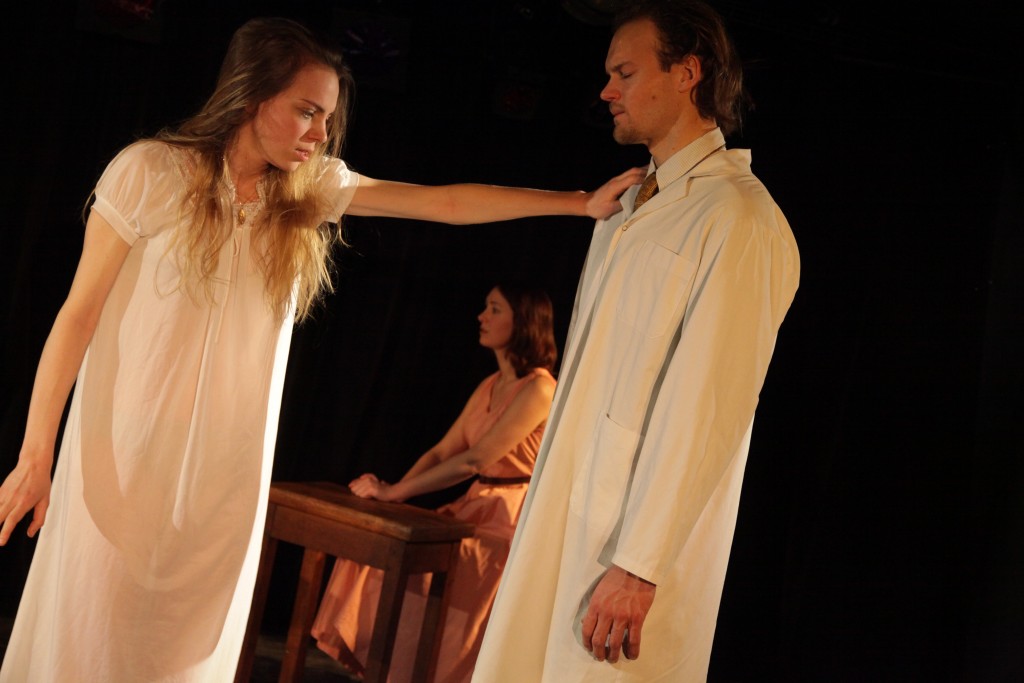
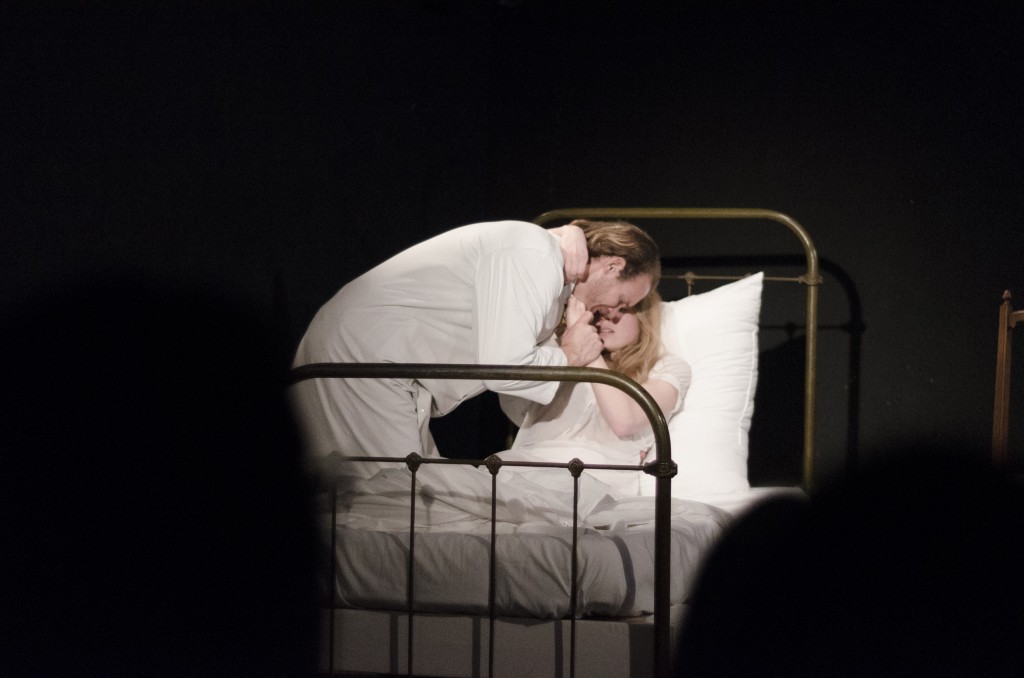
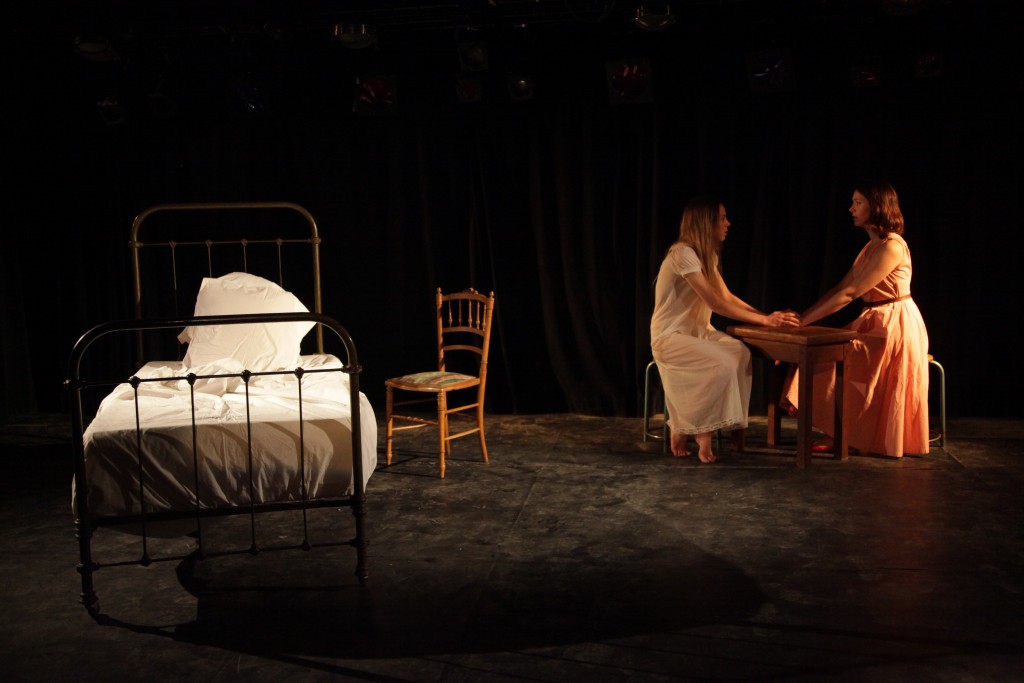
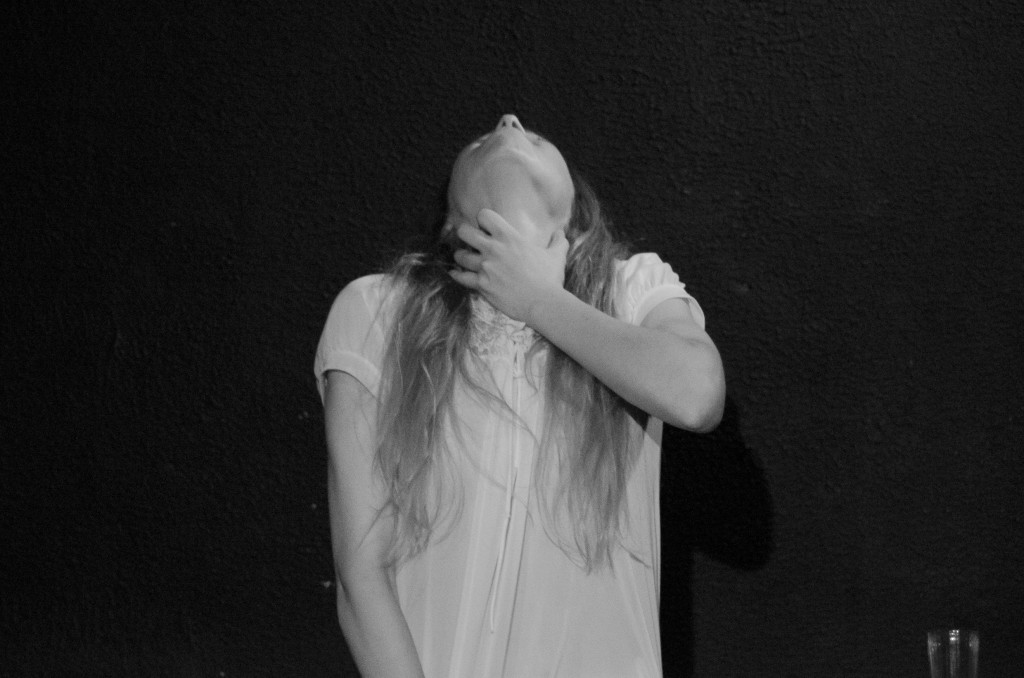
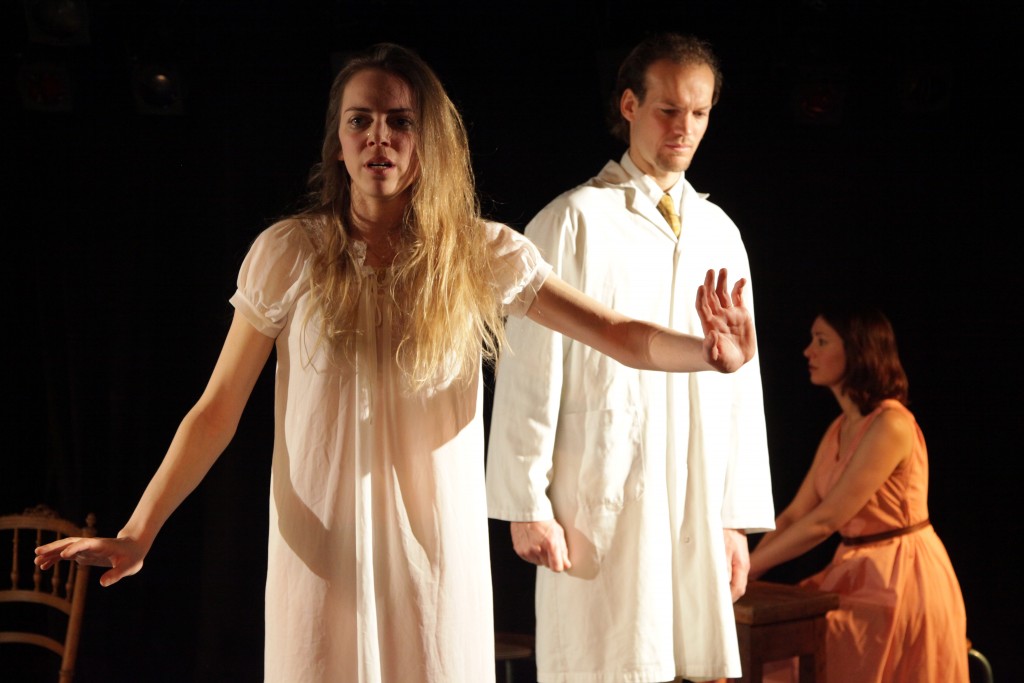
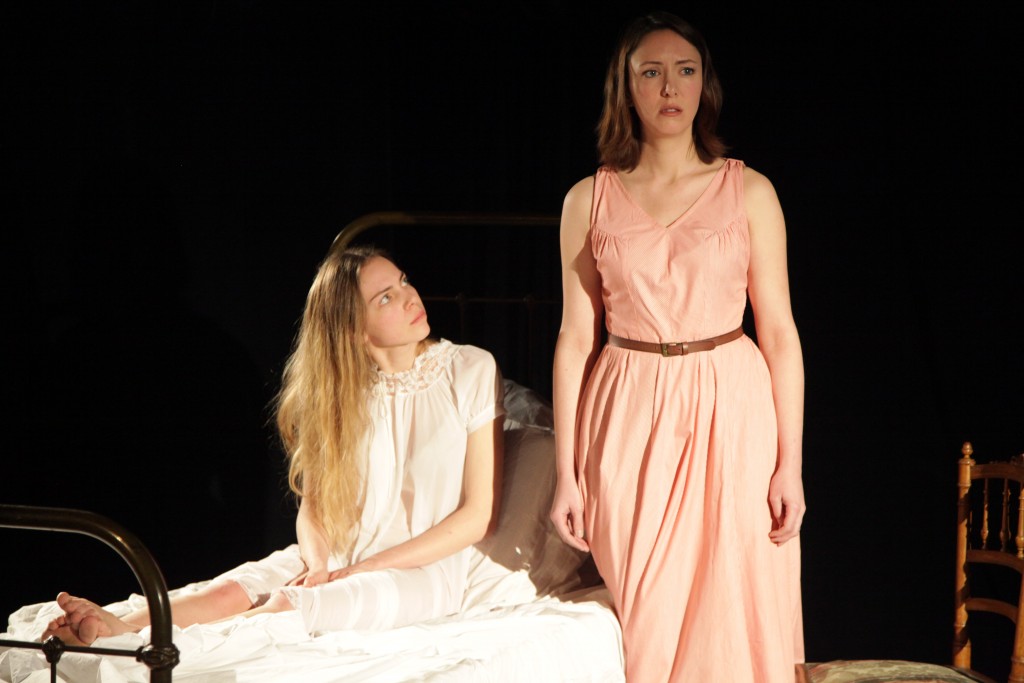
” […] La mise en scène d’Ulysse Di Gregorio est minimale : un lit, une table, quelques chaises. Un savant travail sur les lumières accentue le mystère qui entoure cette jeune femme et la nature de ses rapports avec l’homme qui se trouve assis à côté d’elle. Dans le rôle de médecin, justement, Grégoire Pallardy est aussi sobre et effacé – presque fantomatique – que Dorothée Deblaton se montre expressive et expansive. Le metteur en scène ménage des pauses, des temps de silence, transforme les premiers pas hors du lit en un évènement qui tient le spectateur en haleine. Il réussit aussi à faire entendre le texte dans toute sa force dérangeante : ce que Déborah découvre d’un coup, après un sommeil de seize ans, c’est la vie toute nue, avec ses souffrances et ses chagrins, ses déceptions, ses existences grises. Pas de prince charmant pour cette belle au bois dormant, cette adolescente égarée dans un monde adulte où elle n’a pas sa place.. ”
Suite de la critique sur France Culture
“[…] C’est ce cheminement délicat que montre la pièce d’Harold Pinter. La mise en scène de Ulysse di Gregorio est un condensé de délicatesse. Il fait avancer les personnages par touches délicates, parfois trop. Deborah est un personnage aux facettes multiples, explosive quand elle se rebelle, émotive quand elle sombre, humaine toujours. Le docteur est un homme de marbre imbu de son rôle scientifique. La sœur ne sait sur quel pied danser, elle qui se fait envoyer dans les cordes du malheur par une Deborah revêche.
La pièce est à l’image de l’Alaska, froide à l’extérieure, chaude en intérieur.
Suite de la critique sur Marianne
Dorothée Deblaton………………………………………………….. Déborah
Grégoire Pallardy…………………………………………………….. Doctor’s Hornby
Marinelly Vaslon……………………………………………………… Pauline, Déborah’s sister

